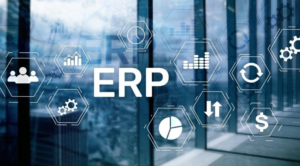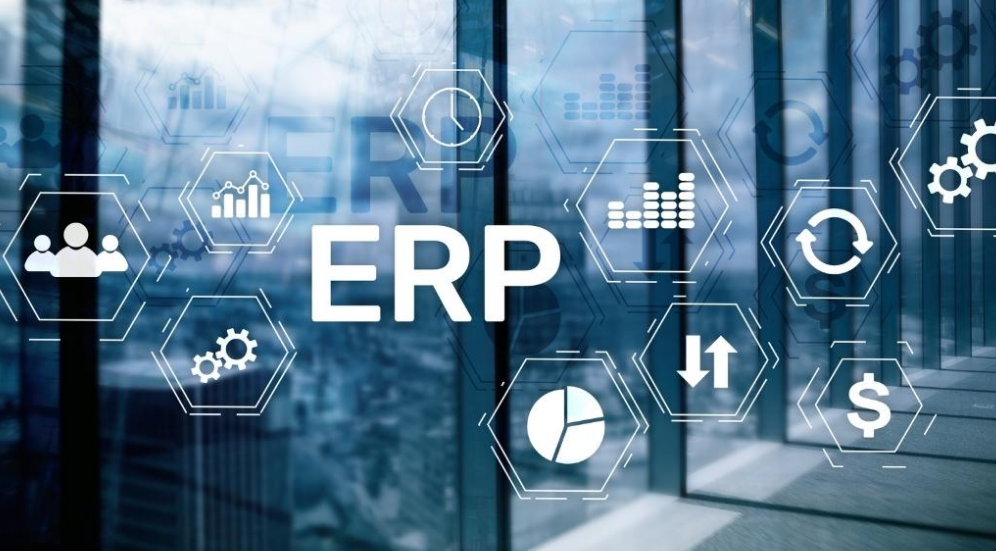ERP Programs: Revolutionizing Business Management

ERP, which stands for Enterprise Resource Planning, is a comprehensive software solution that has become the backbone of modern business operations. In this article, we will explore the world of ERP programs, from their historical development to the latest trends and why they have become an indispensable part of business management.
History of ERP Programs
ERP, which stands for Enterprise Resource Planning, has a fascinating history that dates back to the 1960s. The concept of integrating various business functions into a single software platform was born out of the need for better management of complex manufacturing processes in large organizations.
Early ERP Systems
The first-generation ERP systems were primarily used by major corporations with intricate manufacturing and supply chain operations. These early systems aimed to streamline processes by bringing together diverse functions such as inventory management, financial planning, and production control under one digital roof.
As computing technology evolved, these systems became more accessible, but they were still primarily the domain of large enterprises due to their high cost and complexity.
Evolution and Growth
The 1990s marked a significant turning point in the history of ERP programs. Several factors contributed to the widespread adoption of ERP systems. Y2K concerns, for instance, led companies to upgrade their software infrastructure, which often involved the implementation of ERP solutions.
At the same time, ERP software providers began to offer more affordable and scalable options, making it feasible for a broader range of businesses to embrace this technology. The growth of ERP was also spurred on by the increasing globalization of business, which demanded more robust and integrated systems.
Today, ERP programs have evolved to become a crucial tool for businesses of all sizes and across various industries. They have come a long way since their inception, providing organizations with the ability to manage their resources and operations efficiently.
Key Components of ERP Programs
ERP, or Enterprise Resource Planning, is a comprehensive software solution that integrates various business functions into a unified platform. These functions are typically divided into key components, each serving a specific role in streamlining and enhancing business operations.
Finance
The finance module within an ERP system handles all aspects of financial management. This includes functions like accounting, budgeting, financial reporting, and accounts payable and receivable. With the finance component, organizations can maintain precise financial records and ensure compliance with financial regulations.
Human Resources
The human resources module of an ERP program is designed to manage all aspects of workforce management. This encompasses personnel information, payroll processing, time and attendance tracking, and performance management. It plays a critical role in ensuring that the organization’s most valuable asset, its employees, are effectively managed.
Supply Chain
The supply chain component optimizes the procurement and distribution of goods and services. It helps organizations manage their inventory, track shipments, and ensure the efficient movement of products from suppliers to customers. This is particularly crucial for businesses involved in manufacturing and distribution.
Customer Relationship Management (CRM)
The CRM module focuses on enhancing the organization’s interactions with customers. It includes tools for managing customer data, sales, marketing, and customer support. A robust CRM component allows companies to build stronger relationships with their customers and improve their overall experience.
Manufacturing
For organizations involved in production, the manufacturing module is indispensable. It streamlines production processes, managing everything from production scheduling to quality control. This ensures that manufacturing operations are efficient and meet quality standards.
These key components are the building blocks of ERP programs, and their integration provides a holistic solution for businesses to manage their resources and operations effectively. They help organizations improve efficiency, reduce errors, and enhance decision-making by providing real-time data and streamlined processes.
Benefits of Implementing ERP
Enterprise Resource Planning (ERP) systems offer a wide array of benefits to businesses of all sizes. These systems, which integrate various business functions into a single platform, have become an indispensable tool for improving overall efficiency and competitiveness.
Efficiency and Productivity
One of the most significant advantages of implementing an ERP system is the enhancement of efficiency and productivity. These systems automate routine and time-consuming tasks, reducing human errors and speeding up the processing of information. This automation allows employees to focus on more critical tasks, thus improving overall productivity.
Data Integration
ERP systems provide a unified platform where data from various departments is consolidated and easily accessible. This integration of data is vital for decision-making, as it ensures that decision-makers have access to accurate and up-to-date information. It also enhances collaboration among different teams within the organization.
Cost Savings
While the initial investment in ERP can be substantial, the long-term cost savings are significant. The improved efficiency, reduced operational errors, and streamlined processes result in reduced operational costs. ERP also helps in optimizing inventory levels, reducing excess stock, and minimizing wastage, which leads to cost savings.
Enhanced Reporting and Analytics
ERP systems often come with powerful reporting and analytics tools. This allows organizations to generate detailed reports on various aspects of their operations. These reports provide valuable insights that can be used to make informed decisions and identify areas for improvement.
Regulatory Compliance
Compliance with industry regulations and standards is essential for many businesses. ERP systems often include features that help organizations meet these compliance requirements. This is particularly important in industries such as healthcare, finance, and manufacturing, where adherence to regulations is critical.
Improved Customer Service
For businesses that interact with customers, ERP systems often include a Customer Relationship Management (CRM) component. This helps organizations manage their interactions with customers more effectively, leading to improved customer service and satisfaction.
Scalability
As businesses grow and evolve, their software needs to adapt as well. ERP systems are designed to be scalable, allowing organizations to add new users, features, and modules as needed. This ensures that the system remains aligned with the company’s changing requirements.
In summary, implementing an ERP system brings numerous benefits, including improved efficiency, better data integration, cost savings, enhanced reporting and analytics, regulatory compliance, improved customer service, and scalability. These advantages make ERP an essential tool for organizations looking to streamline their operations and stay competitive in today’s business landscape.
Challenges in ERP Implementation
Despite their many benefits, ERP implementations can be complex and challenging. Common issues include:
Integration Issues
Integrating the ERP system with existing software and hardware can be a daunting task. It requires meticulous planning and often necessitates customizations.
Resistance to Change
Employees may resist adopting ERP systems due to fear of change. Proper training and change management strategies are essential to overcome this hurdle.
Choosing the Right ERP System
Selecting the right ERP system is crucial. Businesses need to consider factors such as their industry, size, and specific needs. It’s essential to evaluate the vendor’s reputation, support, and future development plans.
ERP Implementation Process
Planning and Strategy
A successful ERP implementation begins with a well-thought-out plan and a clear strategy. Businesses should define their objectives and set realistic timelines.
Deployment and Training
The deployment phase involves configuring the system to match the organization’s requirements. Comprehensive training ensures that employees can use the ERP effectively.
Real-World Examples of Successful ERP Implementation
Several organizations have achieved remarkable success with ERP implementation. Case studies of companies like Toyota, Procter & Gamble, and Walmart highlight how ERP systems have revolutionized their operations and decision-making processes.
Future Trends in ERP Programs
Cloud-Based Solutions
The future of ERP programs is increasingly shifting towards cloud-based solutions. This provides businesses with flexibility, scalability, and cost-effectiveness.
AI and Automation
Artificial Intelligence (AI) and automation are becoming integral parts of ERP systems. They enhance data analysis, decision-making, and the automation of routine tasks.
Conclusion
In conclusion, ERP programs have come a long way from their early beginnings, offering businesses an integrated approach to managing their resources. These systems have proven to be essential for improving efficiency, decision-making, and reducing operational costs. As technology continues to evolve, ERP programs are expected to become even more accessible and powerful, driving the success of businesses in the digital age.
FAQs
What is ERP?
Enterprise Resource Planning (ERP) is a software solution that integrates various business functions into a single platform, enhancing efficiency and data accessibility.
How does ERP improve efficiency?
ERP automates routine tasks, reduces errors, and streamlines processes, resulting in increased efficiency.
Can small businesses benefit from ERP?
Yes, small businesses can benefit from ERP by enhancing their operations and decision-making processes.
What are the costs associated with ERP implementation?
The costs of ERP implementation vary depending on the size of the business and the complexity of the project. They include software licenses, hardware, training, and customization.
Are there open-source ERP solutions available?
Yes, there are open-source ERP solutions available, which can be cost-effective for businesses looking to implement ERP systems.
